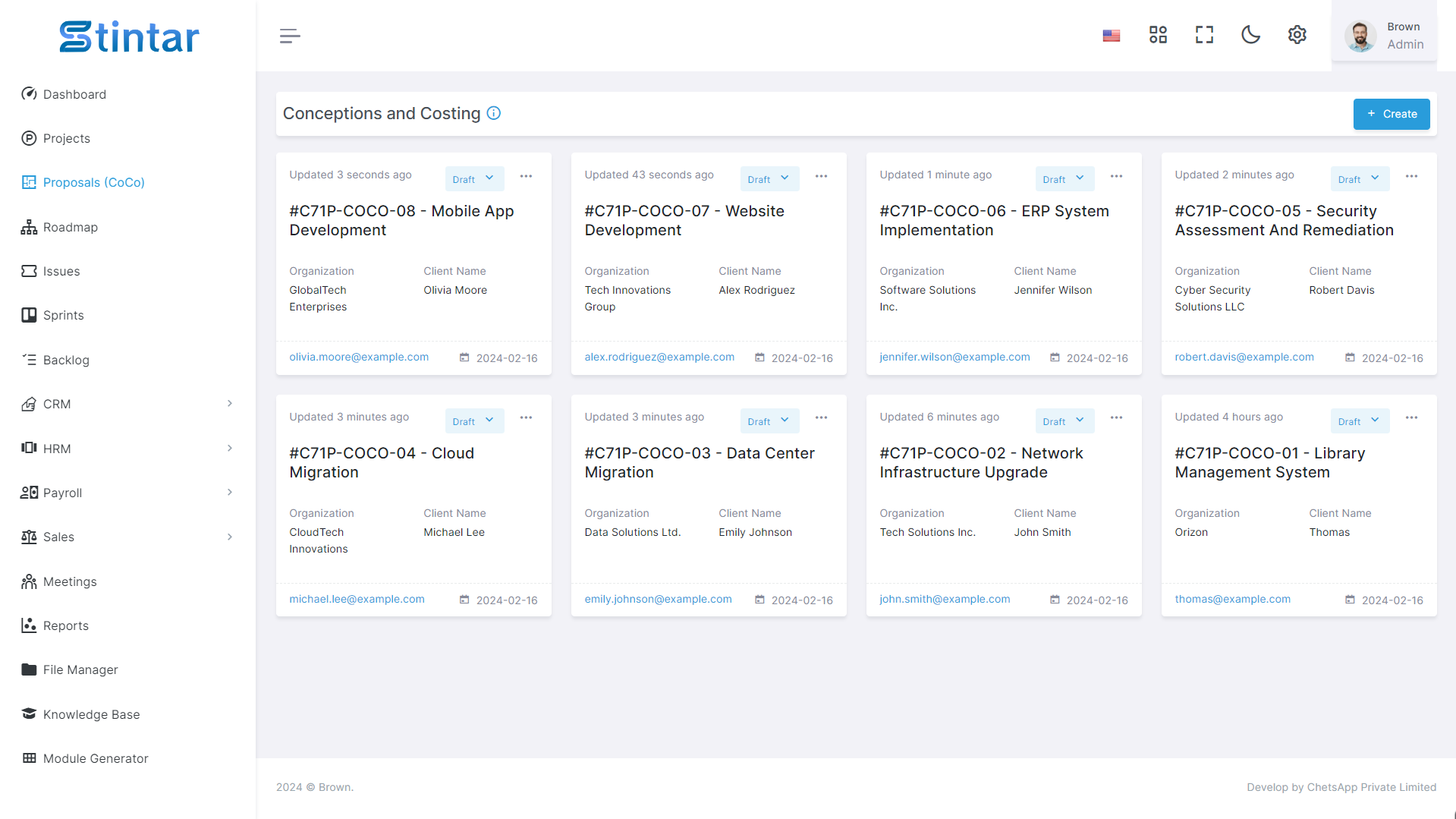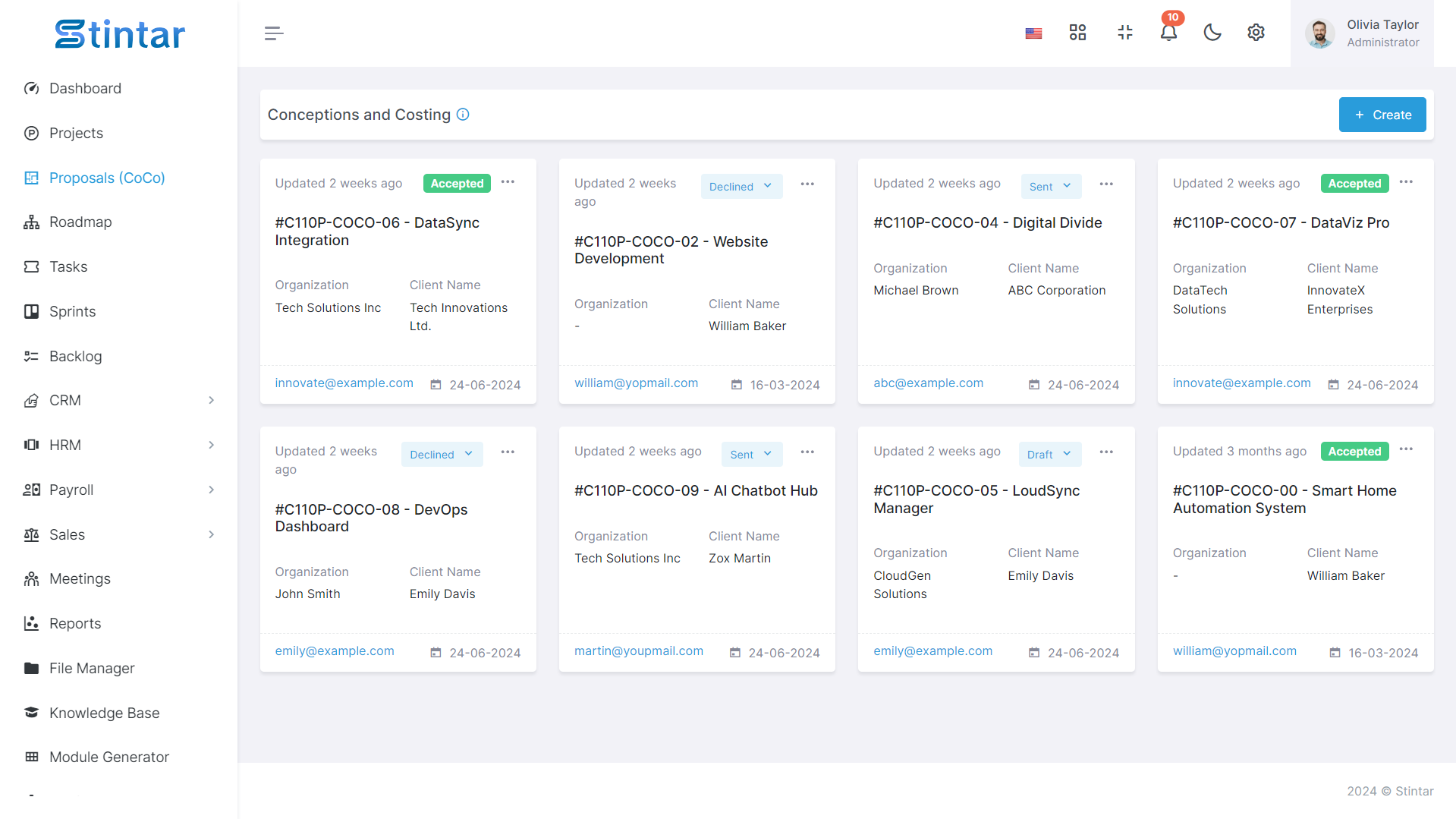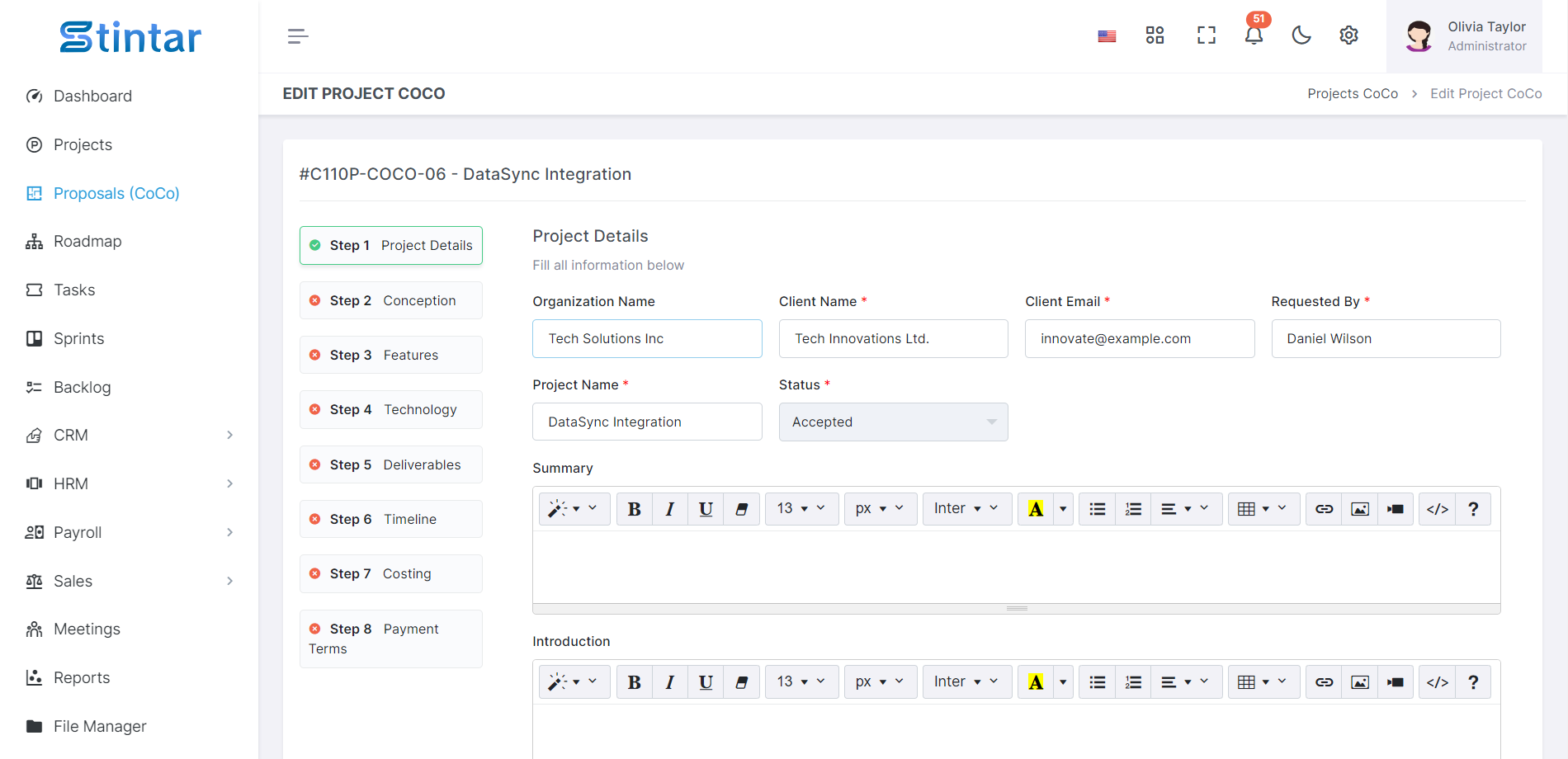How To Create Conception And Costing Of A Project?

Conception and costing are crucial stages in project or service planning, where the requirements are outlined and the financial aspects are calculated for effective execution. It involves understanding client needs, setting project goals, determining scope, and estimating costs to ensure successful delivery within defined parameters.
Create Conception and Costing

Navigate to Conception and Costing Module
Access the designated module within your project management system.
Create Conception and Costing
Tap on the +create button to initiate the costing process for the project or service.
Fill Project Conception Costing Form
Provide essential project details such as organization name, client information, project name, and requester details.
Project Conception & Costing Creation Form
Follow the 8 step process to comprehensively understand project requirements:

Project Details
Organization Name of the organization undertaking the project.
Client Name: Name of the client commissioning the project.
Client Email: Contact email of the client.
Project Name: Name or title of the project.
Requested By: Person within the organization initiating the project request.
Summary & Introduction: Outlining project overview and purpose.
Conception
Needs/Problems: Identification of the client's requirements or problems the project aims to address.
Goals: Clear objectives the project intends to achieve.
User Type: Description of the intended audience or users of the project.
Scope: Defined boundaries and deliverables of the project.
Features
Epic: A high-level grouping of related features.
Title: Name of the feature or functionality.
Time to Complete: Estimated time required to implement the feature.
Technology
Platforms: Target platforms for deploying the project (e.g., web, mobile).
Technology Stack: List of technologies and tools required for development.
Mobile Responsive: Indication of whether the project needs to be optimized for mobile devices.
Deliverables
Project Inclusions: Items or services included in the project scope.
Project Exclusions: Items or services explicitly not included in the project scope.
Notes & Assumptions: Additional comments or assumptions relevant to project deliverables.
Timeline
Modules: Breakdown of the project into smaller segments or phases.
Start and End Dates: Scheduled start and completion dates for each module.
Costing
Title: Name or description of the cost item (e.g., module, feature).
Cost: Estimated cost associated with the item.
Rate Per Hour: Hourly rate if applicable, used for calculating total cost.
Payment Terms
Terms: Conditions or terms governing payment for the project as per your company’s requirement.
Review and Update
Ensure all details are accurately filled and update the conception and costing information.
Submission and Approval
Submit the finalized conception and costing to the client for approval or further discussion.
Finalization
Once approved, finalize the conception and costing details to proceed with project execution.
By meticulously creating and evaluating conception and costing, organizations can ensure projects are well planned, adequately funded, and executed efficiently to meet client expectations and business objectives.